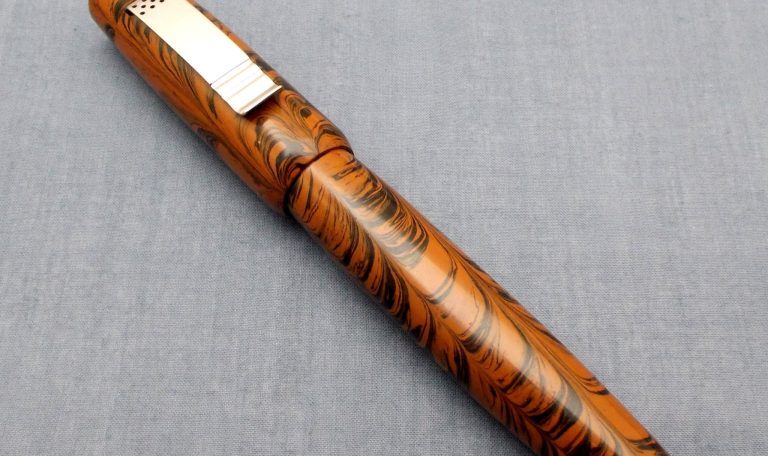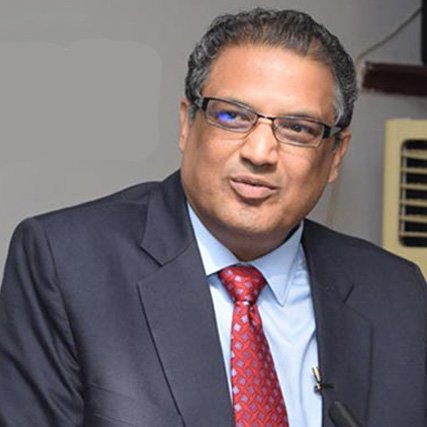
I am a pen dwarf—small in rank and small in quality. I have lived in the town of dwarfs and have been serving the pen for four decades. Upon entering this profession, I encountered Qabool Deo (The Gatekeeper Giant). It was the era of General Zia-ul-Haq’s martial law, censorship was enforced, and I soon learned that in this field, the dwarfs are supervised by Qabool Deo. If any dwarf tried to wander off, Qabool Deo would immediately spring into action.
This pen dwarf had to face Qabool Deo’s wrath as early as 1988. The pen dwarf published a report containing a list of those who had their bank loans waived off. One of the names on that list was General Zia-ul-Haq’s brother-in-law, Dr. Basharat Elahi. That was it. Qabool Deo had armed police deliver forced transfer orders from Ravi Road College, Lahore to Government College, Taunsa. At that time, there was no direct bus to Taunsa Sharif. One had to change three buses to get there.
Anyway, such encounters with Qabool Deo remained part of life. Once, Qabool Deo imposed a cleansing formula on the Jang newspaper through his favorite politician of the time. Along with many big names, the pen dwarf too came under wrath. Accountability chief Saif-ur-Rehman, in a taped conversation, said: “Fire him from the newspaper,” and also declared: “His college job will be terminated too.” At that time, the pen dwarf was also guilty of teaching English at a government college. Eventually, he left that job and settled for being just a pen dwarf.
Then came General Pervez Musharraf. The pen dwarf wrote on the alliance between MQM and Musharraf. Now all of Qabool Deo’s agencies kept trying to prove the pen dwarf was an Indian agent. When President Leghari dismissed Benazir Bhutto’s government, Qabool Deo and Leghari were together. The pen dwarf wrote a letter to the president in the voice of a PPP loyalist. Consequently, inquiries were made into his home, college, and even the nearby vegetable vendor.
Similarly, once a report was published comparing agriculture in Indian and Pakistani Punjab by a professor at the University of Agriculture, Faisalabad. One agency framed a charge sheet claiming the report was prepared on U.S. instructions. Intelligence Bureau officers kept troubling the pen dwarf for months over this absurd allegation.
Qabool Deo’s kindness grew excessive during the tenures of Generals Pasha, Zaheer, and Faiz Hameed—threats, abuse, blackmailing, audio and video recordings—what was not done! Though this pen dwarf is so cowardly that he never confronted the state or government directly, he still tried—trembling and fearful—to stay connected to the truth.
Qabool Deo alone was enough to afflict the dwarfs, but then Generals Pasha, Zaheer, and Faiz also crafted Maqbool Deo (The Popular Giant). Qabool Deo used to oppress, yet the pen dwarf, despite being scared, took pride in challenging power and authority. But ever since the rise of Maqbool Deo, the pen dwarf finds it hard to breathe.
Even if the entire writing is in favor of Maqbool Deo, he is not pleased. If there is even one word against his will, he blows it up, accuses, and tries to exile the dwarf from this world.
They say Qabool Deo and Maqbool Deo are rivals today, but both are made from the same clay—both forged in the same furnace. Qabool Deo used to attack those opposing the state or its policies, while Maqbool Deo falsely accuses pen dwarfs and suppresses democratic tolerance for dissenting views.
During the era of Prisoner No. 804, when this pen dwarf wrote about the “Bajwa Doctrine,” he was silenced. The pen dwarf remembers: in a five-star hotel in Lahore, men in uniform summoned him, issued threats using his family’s names, opened a blackmail file, and started surveillance of his office and home. Eventually, a kind-hearted military officer offered temporary support.
Before that, a car window was smashed outside the house, followed by a phone call: “Is this the house of the pen dwarf?” In the 2018 elections, Saleem Safi wrote the truth and the next day his TV broadcast was shut down. The pen dwarf was blamed for publishing the article as editor and had no choice but to resign.
All this is in the past, but now Maqbool Deo wants to erase all history. Yesterday’s agents of Qabool Deo, who called pen dwarfs traitors, suddenly became “freedom fighters.” And those pen dwarfs who, even trembling, resisted Qabool Deo, are now being labeled envelope-journalists, army agents, confidants of politicians—just to portray themselves as noble.
They earn dollars and simultaneously deny the eternal principle of freedom of expression. To them, being Maqbool Deo’s companion is a sign of courage and liberation, while uttering even one word against their narrative is treated as treason.
What status or rank do pen dwarfs have? Let these ragged souls lie in the corner. This is not even an old tale. In recent times, the former chief of the largest intelligence agency disliked a symbolic piece titled “The Fox and the Stag.” He had it removed from websites, and the matter lingers to this day. Many were forced to write counter columns and attack the miscreant author, but alas, when the general lost his position and glory, the pen dwarf finally found peace.
That general believed the piece was part of an international conspiracy hatched in Dubai, which inspired the pen dwarf to write it.
This is the personal tale of a pen dwarf—just to say that a dwarf’s life is not easy. But we pen dwarfs never claim to be freedom fighters or leaders. We endure all this as part of our journalism.
Let it be remembered: pen dwarfs used to have certain principles. Qabool and Maqbool Deo both destroyed them. One such principle was: discuss whether the news is right or wrong—but do not target the messenger. It’s a global principle: Don’t shoot the messenger. Likewise, disagree with the analysis—not the analyst.
If it is fair to name journalists and comment on them, then every devotee of Maqbool Deo has a past soaked in polishing Qabool Deo’s boots and financial interests.
The question is: if a Maqbool journalist receives news against his narrative, will he refuse to publish it? If so, then he isn’t a journalist at all. It is not necessary for the one who delivers the news to agree with it too. A news story is just that—a news story.
 Colors
Colors  View Books
View Books 


